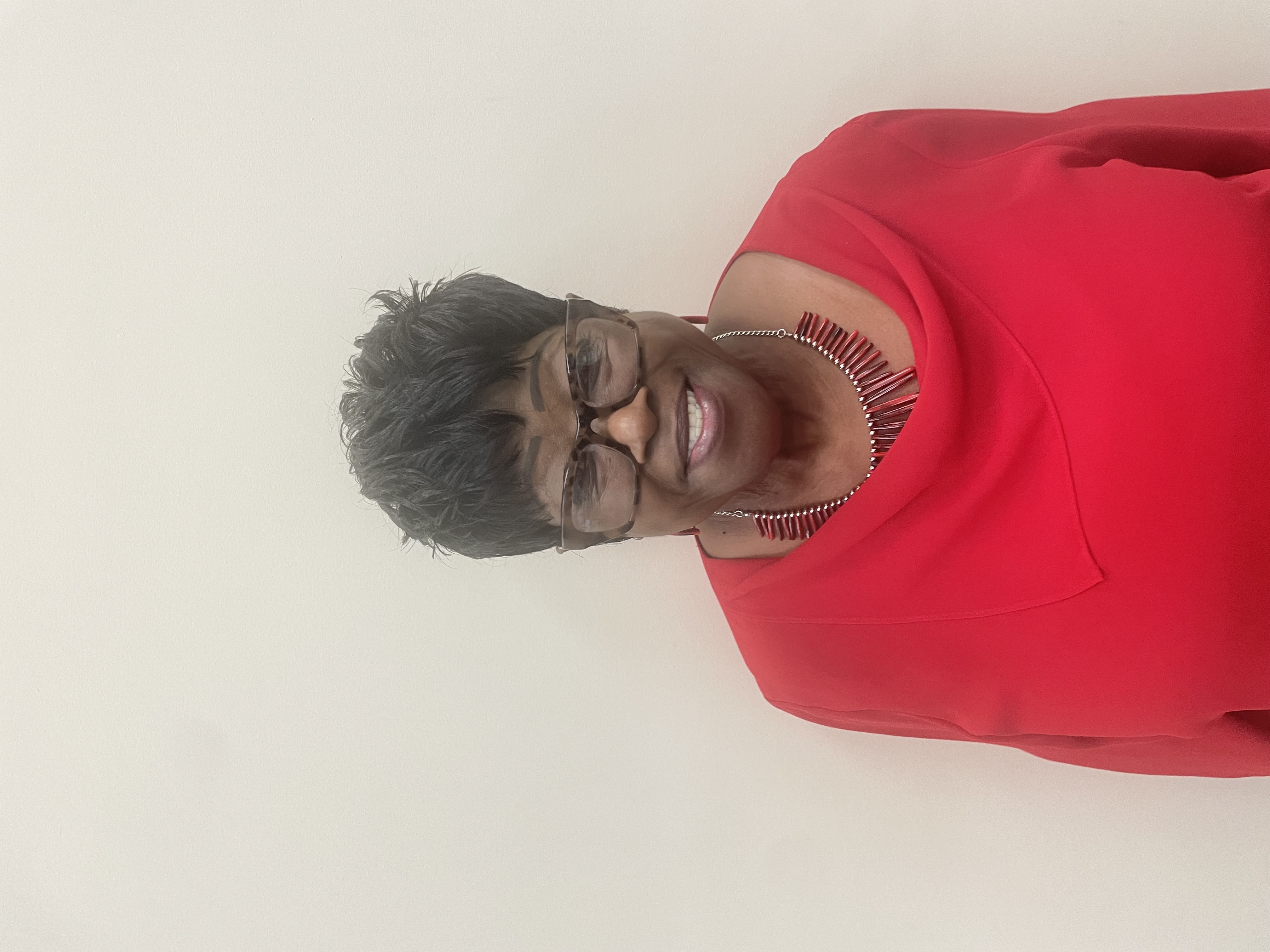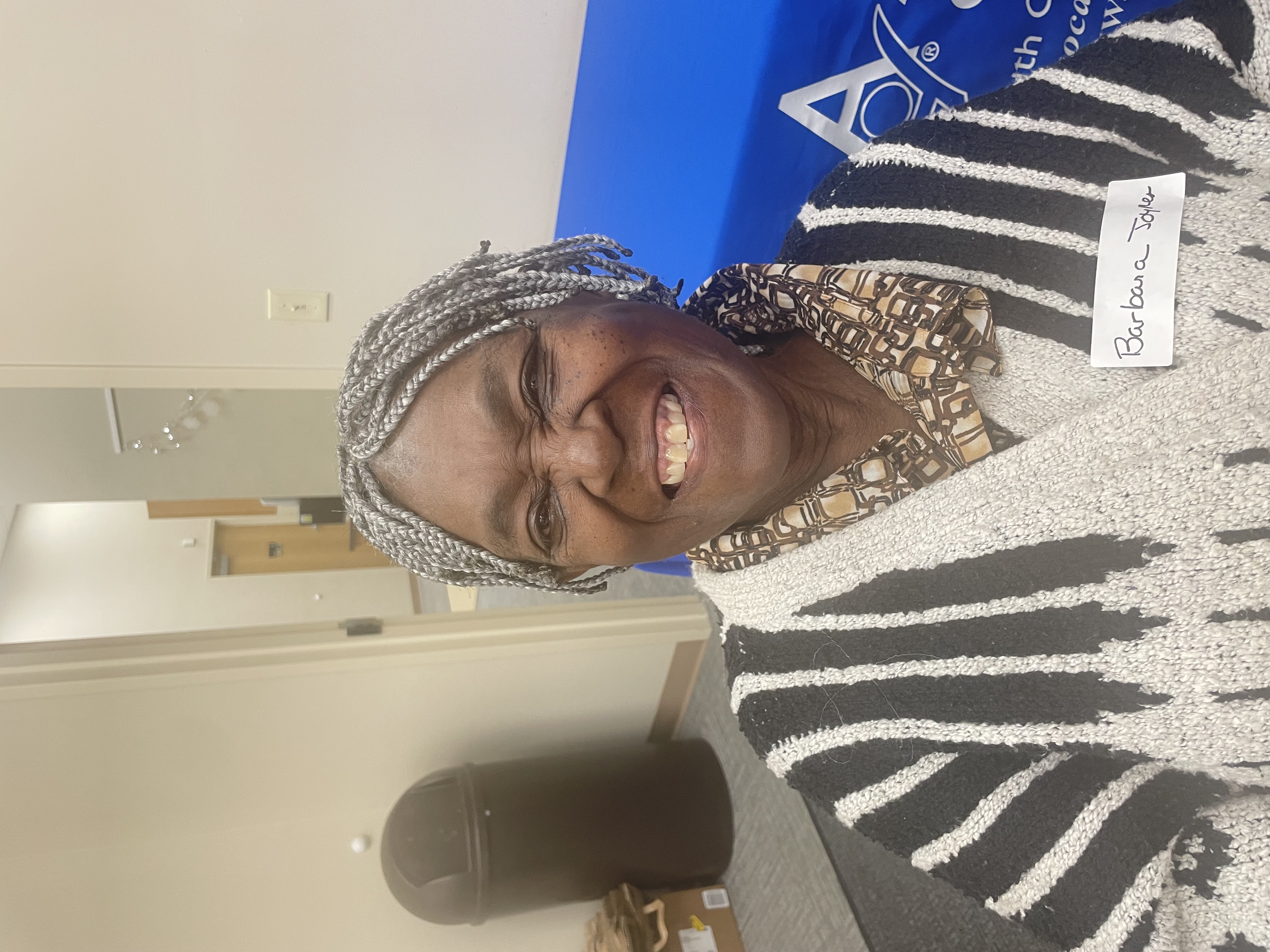Medical Chaperones
Imagine receiving an assignment to assist someone with their medical appointment. Each assignment may involve a different person. Will they be friendly? Will they want to engage in conversation, or would they prefer silence? Alternatively, you might encounter someone you have supported before, making it feel like a reunion with an old friend. This is the life of a Medical Chaperone and as they report, it takes a special person to do this type of volunteer support.
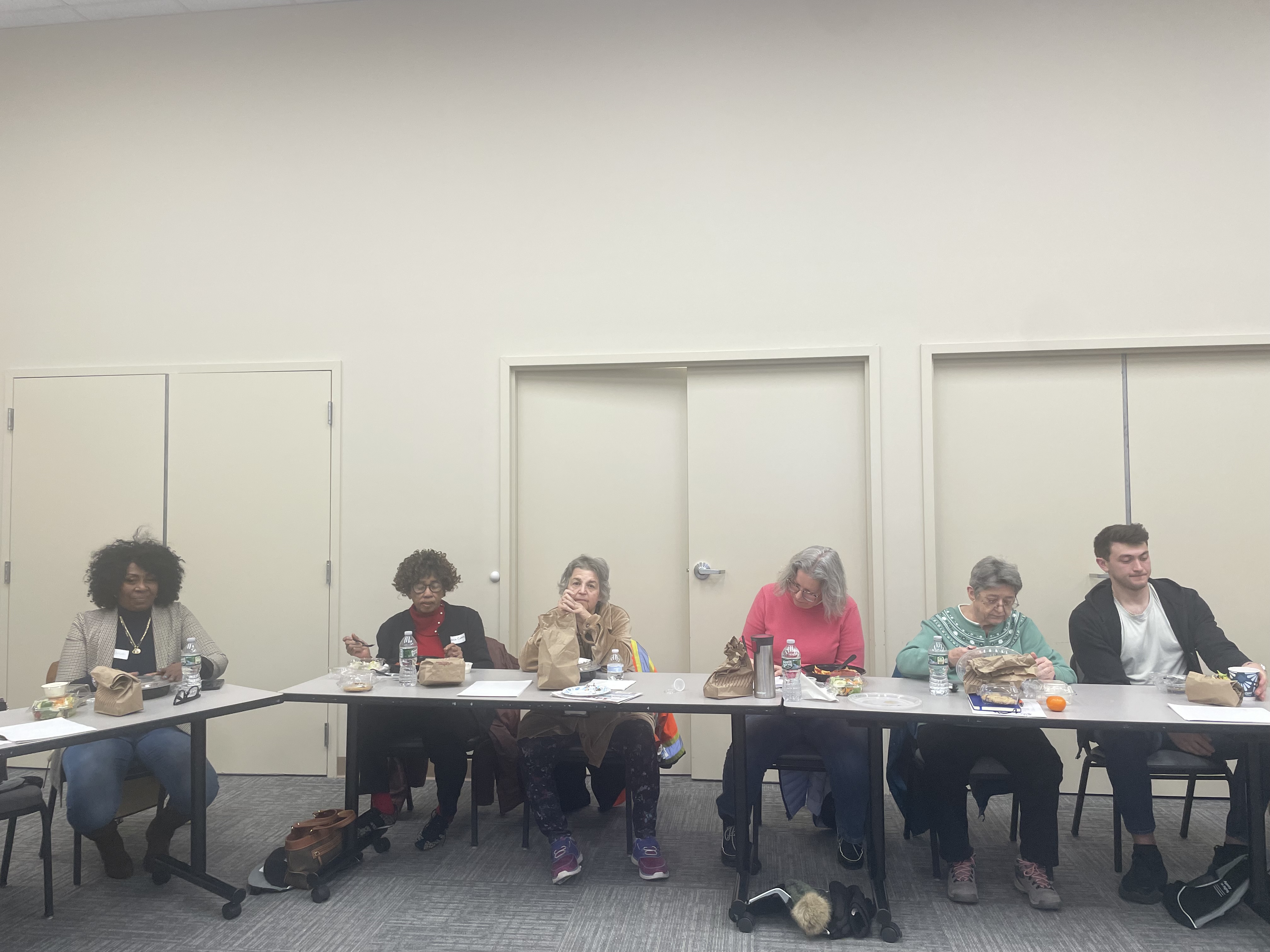 On February 14th, 2025, we held a day-long retreat with our Medical Chaperone Volunteers. We started the day off with something the author, Maya Angelou said: “People will forget what you said, people will forget what you did, but people will never forget how you made them feel.” And that statement was at the heart of the discussions that day.
On February 14th, 2025, we held a day-long retreat with our Medical Chaperone Volunteers. We started the day off with something the author, Maya Angelou said: “People will forget what you said, people will forget what you did, but people will never forget how you made them feel.” And that statement was at the heart of the discussions that day.
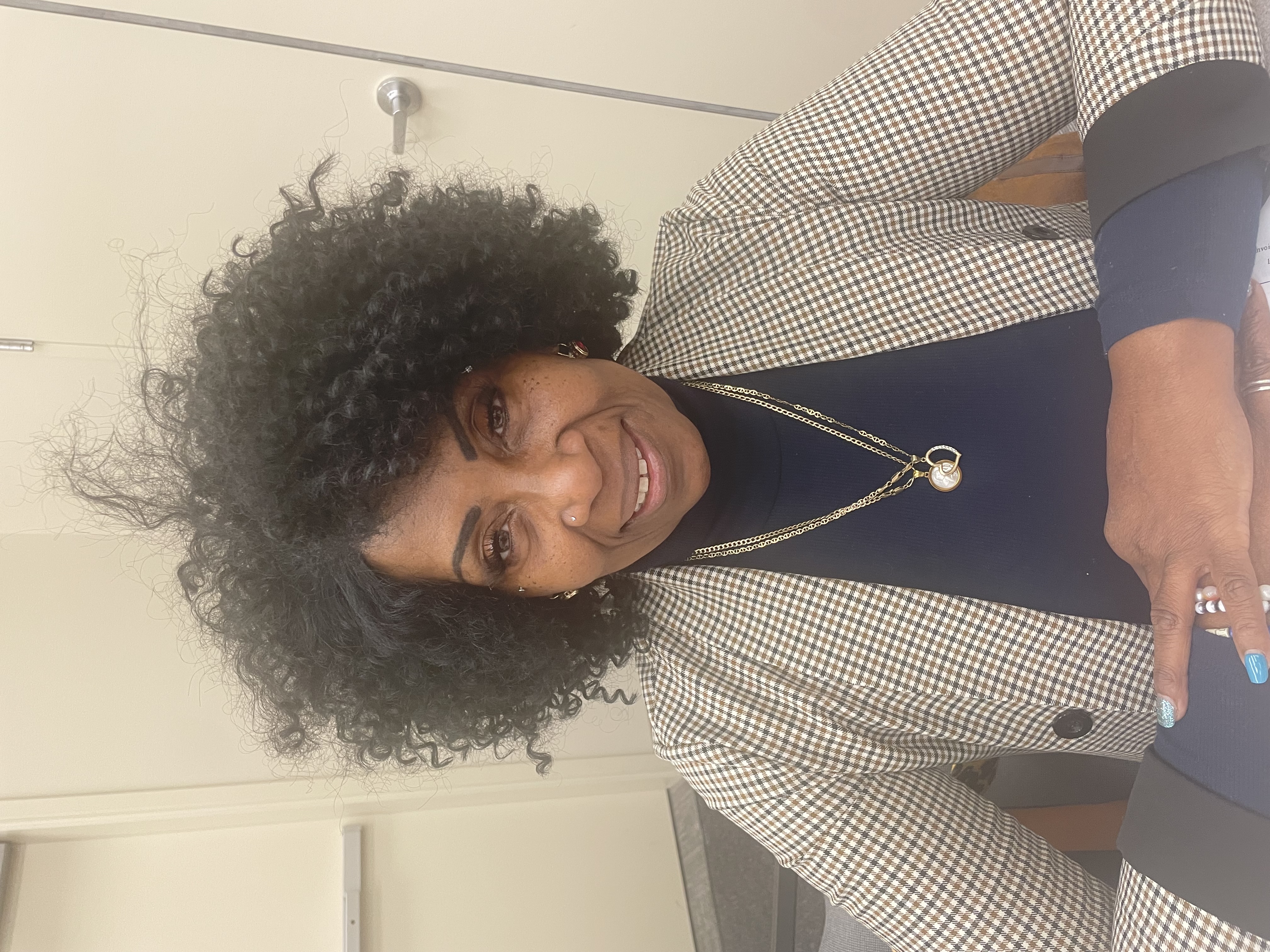 The chaperones in attendance were asked a variety of questions about their experiences while serving with their community.
The chaperones in attendance were asked a variety of questions about their experiences while serving with their community.
Questions like; Tell us the most rewarding part of being a chaperone, or has your experience of being a Chaperone changed your perspective and understanding of the challenges older adults encounter when getting to their appointments, and what led you to start volunteering in this program?
To our surprise not only did the volunteers understand and know the challenges they may face when helping a variety of different individuals, but it is one of the things they enjoy most. Putting themselves out there personally and becoming an advocate for each person as needed to help them get what they need during their appointment. They spoke of how they have learned to be resourceful and calm when they really want to scream.
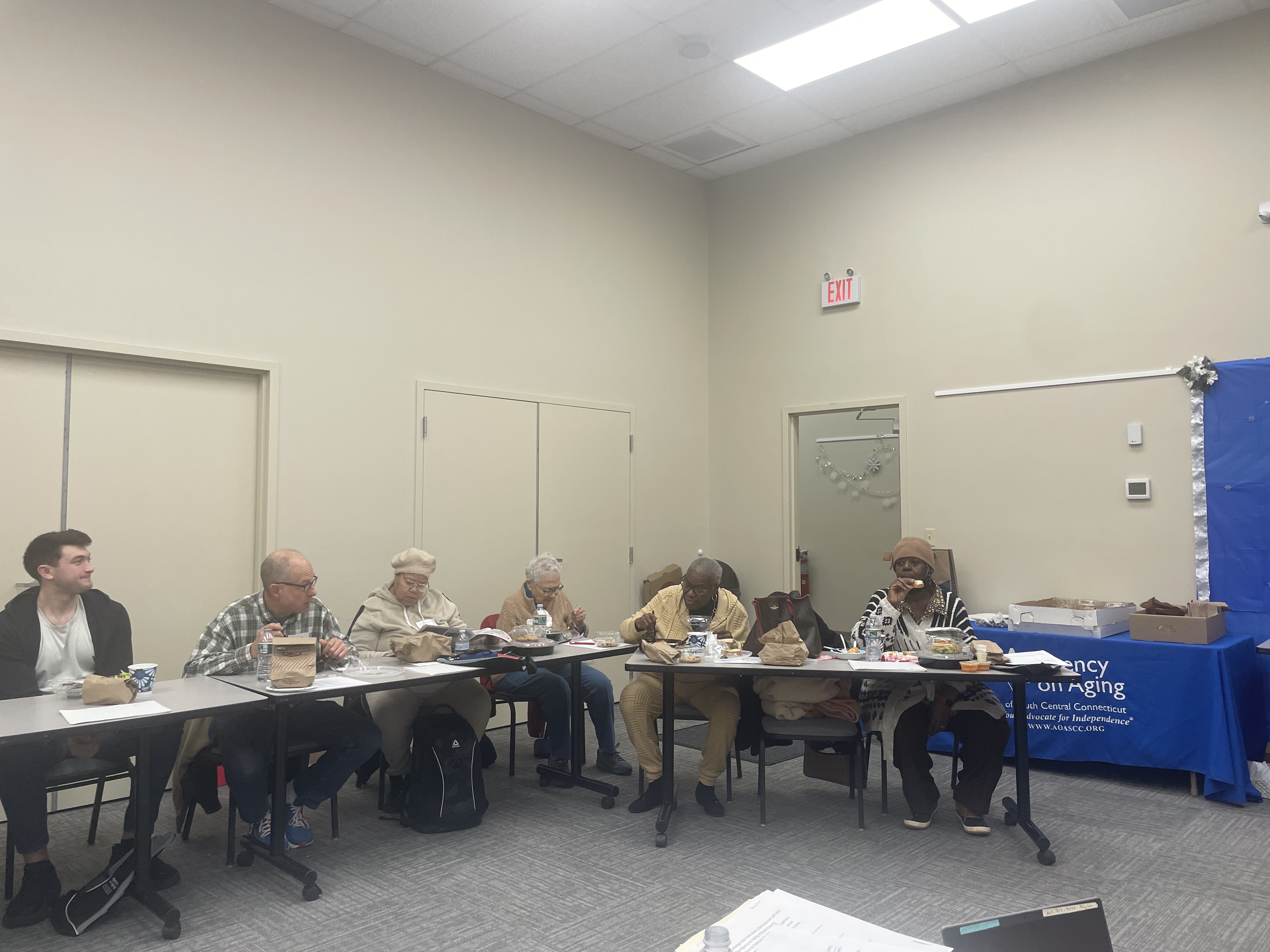 Volunteers reported that the reason for joining the program was because they wanted to help people. They understand how lucky they are to have their health, even though many of them are older adults themselves. The volunteers spoke about the obstacles that their clients encounter, that even medical facilities seem to be unaware of. Common complaints stemmed around difficult access into medical buildings. Things like heavy doors that open out with no way to prop the door open to get a walker or a wheelchair through, kiosks that are too high for someone in a wheelchair to use or having to check in with insensitive personnel who can be impatient and disrespectful.
Volunteers reported that the reason for joining the program was because they wanted to help people. They understand how lucky they are to have their health, even though many of them are older adults themselves. The volunteers spoke about the obstacles that their clients encounter, that even medical facilities seem to be unaware of. Common complaints stemmed around difficult access into medical buildings. Things like heavy doors that open out with no way to prop the door open to get a walker or a wheelchair through, kiosks that are too high for someone in a wheelchair to use or having to check in with insensitive personnel who can be impatient and disrespectful.
Securing and using transportation services is another issue. Older adults often have difficulty calling a transportation service to confirm their ride, particularly if someone has limited phone skills/hearing issues etc. It is also hard for an older adult to trust that a ride is coming since it is common for some kind of scheduling mix-up to occur. Many clients simply cannot navigate their way alone so getting to their appointment feels impossible if it were not for the volunteer chaperone.
The day was informative but also fun as the chaperones shared laughter, camaraderie, and mutual respect and support. The food was also a hit - a delicious lunch from Lorenzos.
If you'd like to learn more about our Chaperone program, please reach out to Gwen McClure at 203.752.3059 x 3193# or gmcclure@aoascc.org
